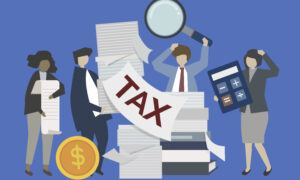
Gig work or self employment can be rewarding both financially and from a sense of freedom. But if you want to maximize the financial benefit and handle the taxes correctly, it takes some effort in planning and research and in maintaining records.
Whether you are new to the gig economy or have been doing it for some time, these questions and tips are for you.
Disclaimer: This article is focused on self employment, sole proprietorship, and single-member LLC’s filing their taxes on their personal tax return. If you have a business entity that files a separate tax return, some of this information will be different.
What is gig work?
Gig work is basically anytime you are getting paid for a service or product without being an employee like the following:
- Driving to deliver food or merchandise from stores
- Driving people from one place to another
- Selling products or crafts, including online
- Providing temporary freelance or contract work
- Running errands for people
- Renting out personal property (car, machinery, tools, etc..)
- Some short term housing rentals
When do I need to file and pay taxes for gig work or self employment?
From the IRS perspective, any earned income is taxable and reportable unless they say it is not.
In the case of self-employment income, if you earn more than $400 for the year, you are required to file a Schedule SE, pay self-employment taxes, and file the standard tax form 1040. If you didn’t make more than $400 through self employment, but you made some money and you otherwise have to file a tax return (for example due to W-2 employee income), then you still have to report the self-employment income. Even if you don’t receive a tax document for the work you did, if you have a filing requirement then you are legally required to report the income. State tax law may vary.
What will make filing taxes easier for gig workers?
Do a little research.
Understand what common tax deductions and credits are typical for your field. This will help you be more focused on your record keeping.
Keep good records and documents.
Many gig workers go through a company or digital platform (Uber, Lyft, Grub Hub) that tracks their income, maybe some of their expenses, and maybe some of their mileage. Often the company doesn’t fully track all of your expenses or all of our mileage. You can go old school with pen and paper, but there are apps that can track income, expenses, and mileage.
If you are using your vehicle for gig work, make sure you track all mileage for gig work, commuting, and personal use separately. Also, track actual expenses for your vehicle.
You should track both mileage and actual expenses even if you have committed to using one or the other for calculating your tax deduction because tax laws do change sometimes. (The two methods for deducting vehicle expenses are mileage and actual).
Keep all receipts and invoices related to the gig work, especially if you aren’t sure which expenses are deductible, and again tax laws change, so the best approach is to keep them all. Make sure you track any cash payments received or paid. Consider tracking income and expenses in a bookkeeping software, on spreadsheets, or on paper to make tax time and tax payments easier.
Don’t mix gig/business income and expenses with personal expenses. If possible, have a separate bank account and separate credit cards for the gig if used.
Pay estimated taxes if there is a need.
The United States has a pay-as-you-go tax system. For employees, this is taken care of through withholding taxes from their paycheck. For self-employed individuals, this often is taken care of through quarterly tax payments. This may be covered by your tax withholding through your employer or other sources of income if your gig work income is small, you have other income, and you typically get a large refund. But if your self employment is relatively large, then it would be wise to calculate if you should pay estimated taxes every quarter. These taxes would include self-employment taxes (SE taxes).
Normally social security taxes are taken out for the employee by their employer. The employee pays 7.65% social security and Medicare taxes and the employer also pays 7.65% social security and medicare taxes. For self-employed individuals, they pay the full 15.3% SE tax. This is included in their quarterly estimated tax payment if necessary, as well as any estimated income tax. The IRS provides plenty of guidance on how to make estimated tax payments. Don’t forget that you may need to make state-estimated tax payments.
What deductions can gig workers take?
Not all potential deductions apply for all self-employed individuals. Expenses do have to be “ordinary and necessary.” Here is a list of seven (plus) possible deductions:
- Home office deduction: This can only be taken if the home office has regular and exclusive use for your gig or business work and it has to be the primary place of your business. You can find more information on the home office deduction here.
- Auto expenses: Either actual expenses or mileage may be taken as a deduction for vehicle use for a business. There are pros and cons for each choice, so do your research.
- Meals: This one you want to be careful about. The meals do have to be business-related, and the amount of the deduction can change depending on circumstances. Many meals only qualify for a 50% deduction; however, there is a 2021 and 2022 change that allows more 100% deduction.
- Self-employment tax deduction: Self-employed individuals may take 50% of their self-employment taxes as deduction.
- Phone and internet costs: Please note that these may require additional calculations and “proof” if there is personal use for phone and internet as well as business use.
- Some general deductions: Advertising, some non-federal taxes, licensing, service fees, interest, subscriptions, supplies, and maintenance.
- Qualified business income deduction: The Qualified Business Income (QBI) deduction is a relatively new business tax deduction and most self-employed individuals can make use of it. It can be a deduction of 20% of the qualified business income; therefore, it is very valuable. Most tax software will calculate this for you automatically as you answer the questions that are asked of you. You can read more about QBI here.
An additional good place to get information is the IRS Gig Economy Tax Center.


